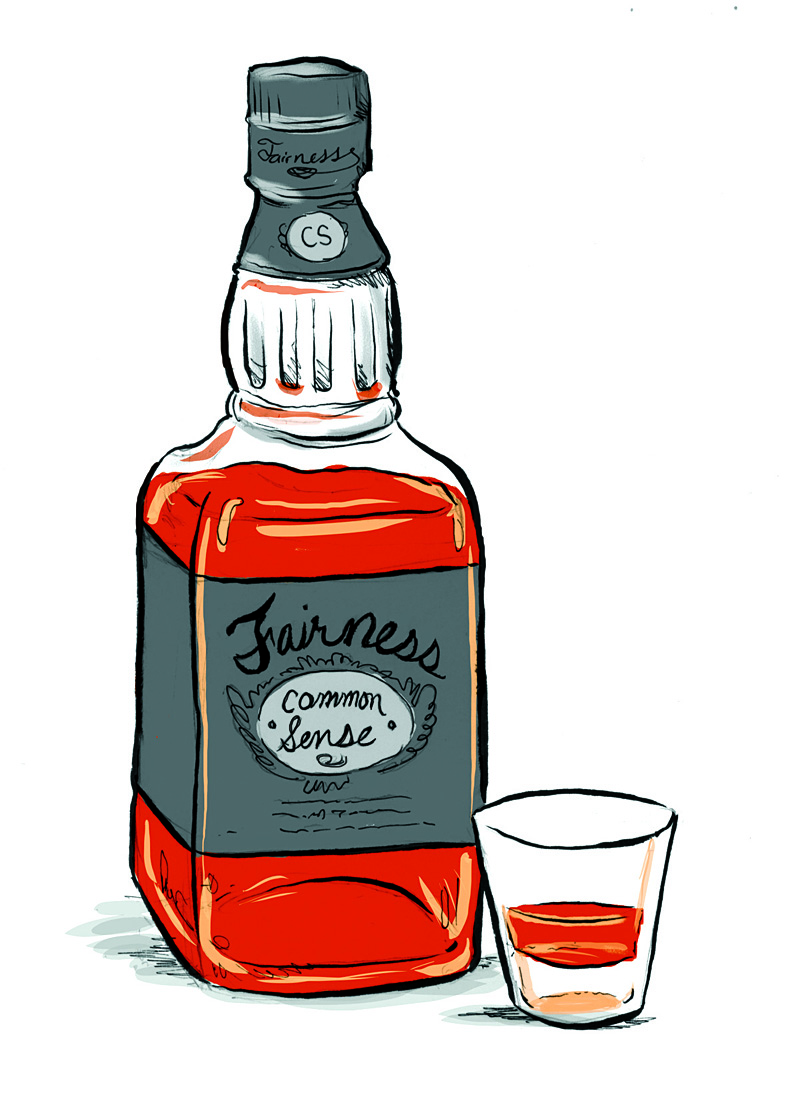A quirk in Washington liquor laws could force Central Cinema to choose between continuing to serve alcohol and admitting minors. And that could force the Central District theater to shut down, says its owner.
As first reported by the Central District News blog, the state’s liquor control board last month notified the single-screen theater that it was in violation of a rule prohibiting minors from entering a “cinema with a dinner theater” licensed to serve beer, wine, or spirits. Although Central Cinema has had its license renewed twice since the law was enacted in 2010, the board didn’t broach the issue until the theater applied for a spirits license so it could add cocktails to its menu.
Owner Kevin Spitzer was running errands when he took the call. “I was like, ‘You’re going to close us,’ ” he recalls. “For us, it would be devastating. We’re a neighborhood family theater. Talk about taking a big piece of who we are.”
Spitzer stresses that restricting the theater to adults would spell a far greater loss than just the box-office revenue from G-rated movies. The movie house currently functions as a neighborhood gathering place, where kids congregate for weekly cartoon showings, nonprofit Reel Grrls stages workshops for teens, and a Christian rock band from a nearby church practices. This December, Central Cinema hosted a community Christmas party, with Earl, the local barber, serving as Santa. A junior-high-school break-dance team also performed. “It was a fun party and it was packed with families,” Spitzer says.
According to Spitzer, the rule was written in response to Mountlake theater Cinebarre’s license application. Since the board hadn’t before dealt with the booze-and-view model, the state devised a rule prohibiting alcohol sales in movie-theater lobbies and banning minors from theaters with alcohol service.
“Their big fear was that every mall multiplex was going to install beer taps next to the popcorn machine,” Spitzer says. “They’re worried about a dark room and minors not being supervised.”
Spitzer points out that minors are allowed in similarly dimly lit entertainment venues where adults drink, such as Teatro ZinZanni and The Triple Door. “What’s the big deal with having a screen instead of people onstage?” he asks. “Just because we run a projector instead of an old guy with a banjo doesn’t mean we’re any different.”
The establishments cited by Spitzer are licensed as restaurants, which is how Central Cinema has been classified since 2005. Spitzer doesn’t want to stop serving beer and wine, which accounts for 30 percent of the theater’s revenue, but wants to avoid being reclassified as a bar, which the theater-specific rule requires. He’s now working with the board to determine whether Central Cinema could fall under a different category.
“They’re not going to prosecute us as long as we’re working toward becoming compliant, as long as we’re applying for things,” Spitzer says. “I wish I knew how everything was going to work out, but it’s been up in the air for a month and it’s still up in the air.”
Spitzer initially pinned his hopes on rewording the rule or inserting an exception for Central Cinema, but Gov. Chris Gregoire has imposed a year-long moratorium on non-critical rule-making. Yet Brian Smith, spokesman for the liquor control board, suspects the conundrum may still have a legislative solution. “We’re working with the legislature to get some clarity in the 2012 session,” he says, adding that the board would prefer that the legislature fashion a comprehensive liquor policy rather than address appeals on a case-by-case basis. While the board doesn’t receive many liquor-license applications from movie theaters, “We’ve seen more in recent years.”
Central Cinema’s relationship with the board has always been good, says Spitzer, who doesn’t blame the agency for enforcing the law. “They don’t have a problem with how we operate, but they can’t just let it slide because they like us,” he says. “We’re trying to see what we can work out that keeps us in business and keeps the neighborhood happy.”








